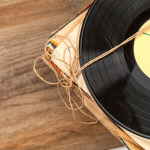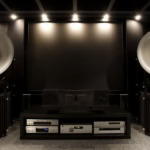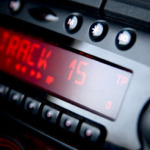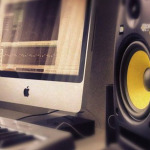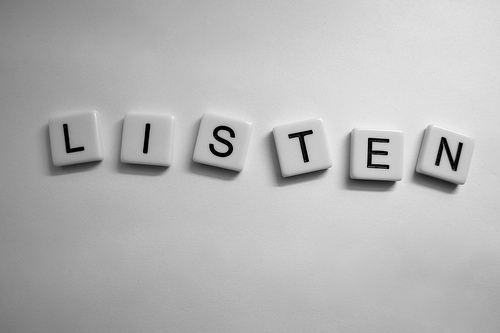 Whether you’re a musician or an engineer, your goal is the same in both cases: evolve, get better and produce better music.
Whether you’re a musician or an engineer, your goal is the same in both cases: evolve, get better and produce better music.
But what is the really first step towards making better music?
The answer is both simple and difficult at the same time: you need to get better at listening before you can be better at producing or playing.
Most of the times, people think the answer relies on some kind of expensive hardware or some really challenging miking technique, but the truth is not there.
Before even thinking about buying a new piece of gear, you should first learn how to listen and how music should sound, how should a good electric bass sound, how should a drumkit spark and so on. You won’t find these answers in new gear…
Just answer this question: “How can a new piece of hardware make your music better if you still don’t understand the actual meaning of better?”
If you can’t tell what better really is, then there is no chance a new pair of speakers will give you the answer.
You can’t build up your decisions on reviews read somewhere or on your best friend’s latest advices.
You First Need To Know What “Better” Means
Starting with an “active listening” mindset is key to learn how music “should” sound.
Don’t get me wrong with this. I am not saying there is just one way music should sound and we all need to conform to that! Wrong!
We need a reference point of what we know that sounds great, so we can use it to learn, build our tastes and then be able to point our music in the direction we want it to go.
That’s why I spend a big chunk of my time just listening to records, good records, records I trust and I know have been produced with quality in mind (loudness wars victims are out, for instance). The more you listen the more you grow up.
It’s a similar thing to what happens when you try to learn a foreign language: you can spend an entire year reading books that teach you the pronunciation, but you won’t probably go far with that. Only real conversations will improve your speaking skills. It’s the same with music.
The Inner Power Of Your Brain
Even if you don’t consciously know where to focus your listening to, your brain will do a big part of the hard work for you, filtering and storing all the information in the largest database we know: your mind!
Our brains are so powerful and complex that they can actually accomplish difficult tasks “all in background”. That’s amazing, isn’t it?
Then, next time you’ll start crafting a new mix or miking your drums, when you’ll listen to it, your brain will tell you if there is something wrong somewhere.
This is not something you can obtain really quick but, in essence, it’s what set the pros apart from the casual engineer. They are not making superb sounding guitars and punchy mixes because they own a vintage 1176 compressor!
And no, they don’t own the so called “Golden Ears”.
They’re crafting those sounds because they started by having a clear idea of the end result they wanted to achieve, and they reached that level with 2 things: experience of doing the work day in-day out and listening. Lots of listening.
Now, only time and practice will give you the experience, but you can speed up the process spending some time by doing some “active listening”.
Active Listening ?
There are basically 2 different types of listening: passive listening and active listening.
Passive listening is the most common one. Think about when you’re waiting for the bus at the bus stop, listening to music with your mp3 player, or driving to work while listening to the radio in your car…That is passive listening.
When you listen to something in a passive way, you’re not really caring about music. Music is just “flowing” in the background, filling the space around you.
How punchy is the snare? What about the vocals? And the bass line? You miss all these things. Music is not the center of your thoughts during those moments.
Active listening is different: you listen to something shifting it in the center of your mind.
When you do it for the first time, chances are that something causing distraction will make you lose the concentration. You couldn’t even get to the end of the first song without losing your focus, finding yourself doing something else while the song is still playing and changing the listening experience from active to passive. That’s the hard part with active listening. You just have to listen and think about what you’re hearing.
In other words, that’s the difference between “just hearing” and “listening”. Most people won’t actually take the time and energy to really listen to something, and that’s the reason why they can’t hear details, not because they’re “deaf” or don’t have “Golden Ears”. The answer is focus. Keeping yourself focused while listening is key.
Where To Start
Start with some great records, something that is well known for its super sound or great arrangement or whatever.
The genre is not really relevant here but consider this: if you’re a looking to became better at tweaking drum sounds (I mean “real drums”), you should aim to listen to something that features real drums, so you can have a good perspective on how a good drumkit should sound.
Even if you can’t tell the difference between mp3s and CDs, avoid listening to mp3 files. Your brain will recognize that difference in the long run, believe me!
If you create your musical experience on mp3 files only, that will be the only reference your brain will have and, since there is a quality loss in mp3s due to lossy compression, that will affect your future judgments in a negative way.
Our ears are the most important tool we have!
Knowing how something should sounds and evolving our personal tastes will play a big part when we’ll need to be critic to commit to a musical decision.
Begin to develop your ears starting with some accurate listening, otherwise, you’ll just spend most of your time time guessing and you’ll never feel confident with your music.

